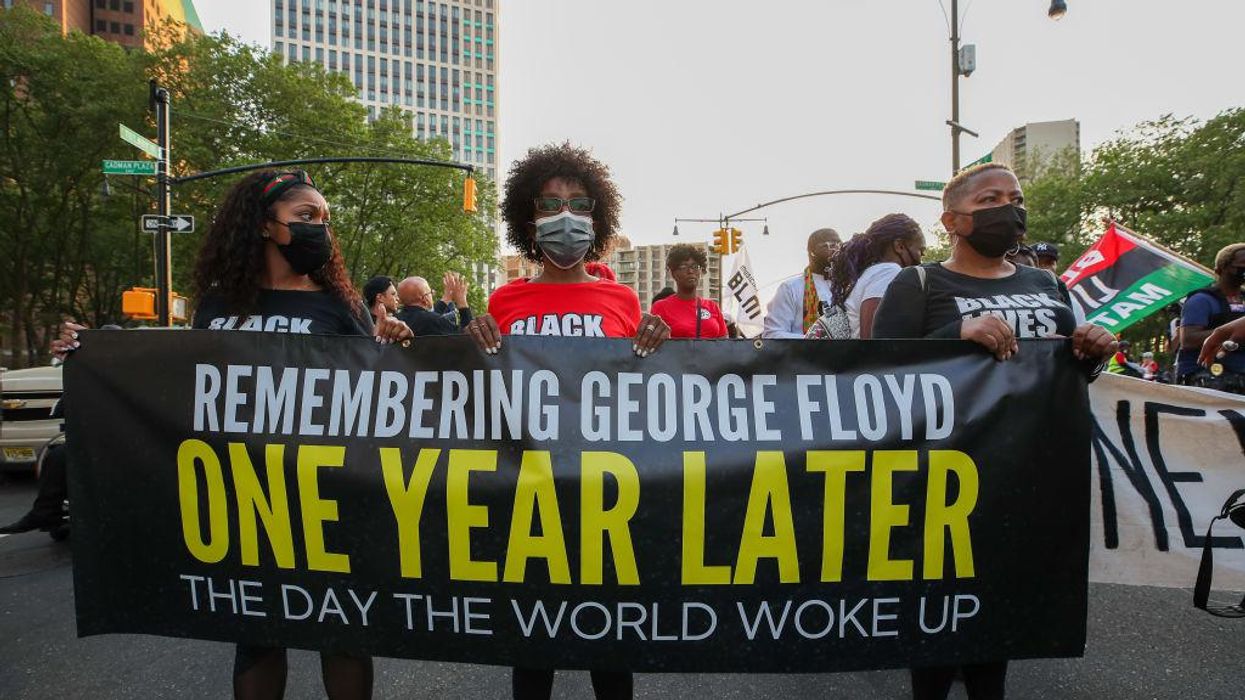
Photo by Tayfun Coskun/Anadolu Agency via Getty Images)

A recent trip back to New York City to see family and friends reminded me of a belief I share with Black Lives Matter: It takes a village to raise a child.
The difference is, my idea of a "village" is much different from what the founders of BLM envision.
For those who don't remember, BLM listed its 13 Guiding Principles online for four years before they removed them after public criticism in 2020. Here is the text of the "Black Villages" principle:
"We are committed to disrupting the Western-prescribed nuclear family structure requirement by supporting each other as extended families and 'villages' that collectively care for one another, and especially 'our' children to the degree that mothers, parents and children are comfortable."
BLM's village does not include husbands, fathers, or even men in general. It was not an anomaly. None of BLM's 13 principles did. The organization's founders received a great deal of public criticism because of their views on the nuclear family, which only intensified after they identified themselves as Marxists. Understanding their views on Marx are an important piece of the puzzle because Marx himself called for the abolition of the family. His view in the 1800s was that the ruling class used the families of the proletarians for economic gain. He claimed abolition of the family would prevent the exploitation of working-class children.
Getting a chance to spend time with my family and celebrate my best friend's birthday reminded me of the village in which I was raised. That village included both my extended family of aunts, uncles, and cousins as well as my church family. Most of the adults in both groups immigrated to the United States between 1970 and 1990 from the Caribbean. Most of their children were educated entirely in America.
My three best friends and I — affectionately known to our families as the Four Horsemen — were all raised in families with both of their parents. The other families from our church that made up our village had similar structures. Everyone worked hard and lived modestly. All our families were strict, and the men worked with their hands. Whether they did carpentry and construction during the day or gardening in the evening, they were always focused on building and growing things.
We went to church picnics every summer, played in a basketball league, and did demolition and construction work with the older men. Families would help each other out as needs arose. Every time someone bought a house, at least 10 people would show up to help them move in and get settled.
Our families had similar standards, so no child could attempt to go to one house to skirt the rules laid down by their own parents. We got into plenty of mischief as teenage boys growing up in New York, but the values instilled in us by our parents have borne fruit. The kids in my generation are productive members of society. We have amassed degrees, certifications and self-sustaining careers, but it is the replication of our village that I believe makes our parents most proud. There has been a steady stream of weddings and baby showers over the past decade, and it is a blessing to see how much our parents enjoy being grandparents.
This is the vision of family life and community I see when I think about a village. BLM wants to erase men, aside from the ones whose corpses they can exploit for their own gain. Their village model exists within their broader worldview — one in which capitalism, private property, police, prisons, and any social norms they deem oppressive are abolished. In their world, the state would instill values in our children through public schools and the government would provide for everyone's material needs.
If corporate media wasn't populated with such sycophantic activist journalists, maybe one would have thought to ask BLM an obvious question: why would an organization committed to black life be opposed to the family structure that has proved most beneficial to children?
I have yet to hear a credible argument about why the black community is suffering from too many nuclear families. Stronger nuclear families make for stronger villages and extended families. They provide an environment of love and protection for children navigating the hard realities of life on a daily basis. Weakening those bonds only makes sense to people that think BLM stands for "buying large mansions.''